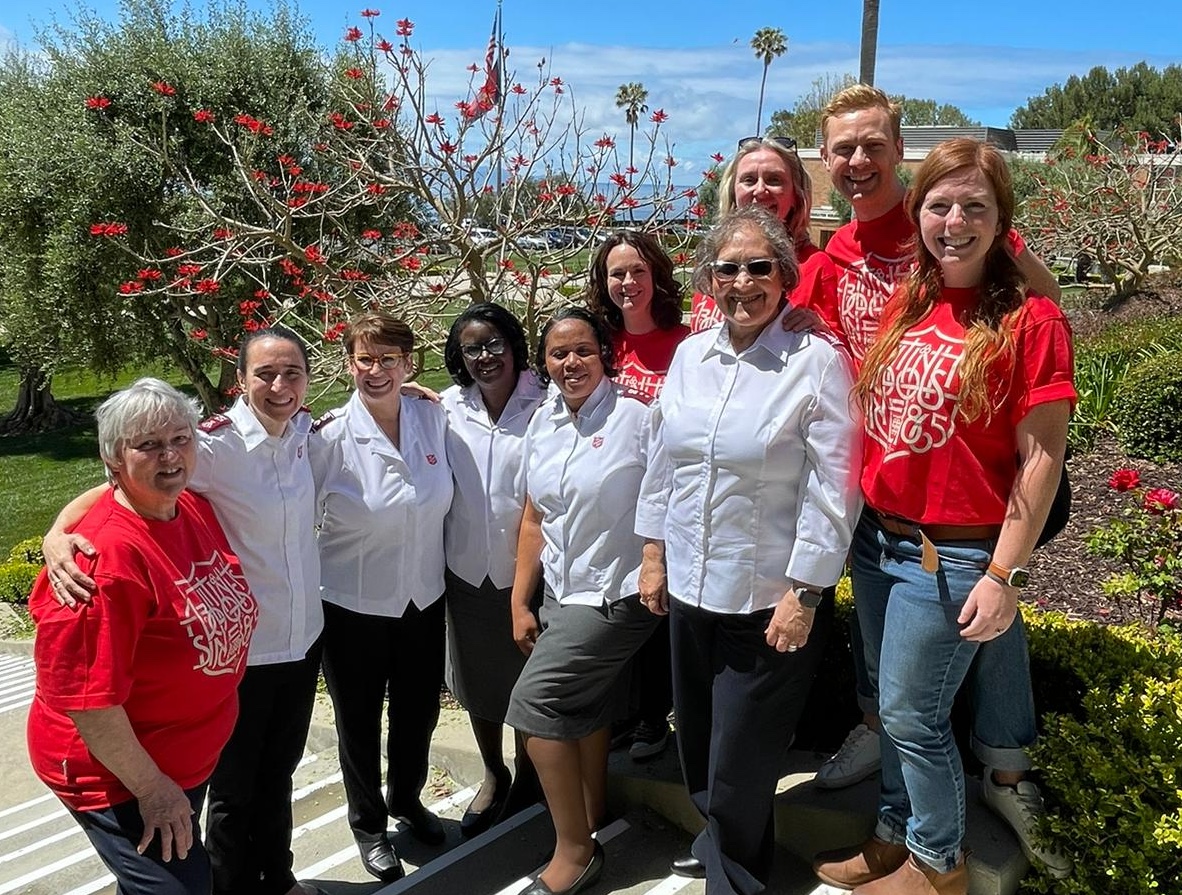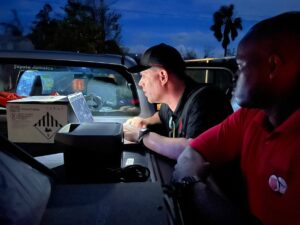Western Territory releases annual impact report.
Since its inception, The Salvation Army has been at the forefront of the fight against human trafficking around the world, including in the Western U.S., where the organization served 183 trafficking survivors in 2023, according to its 2023 Territorial Human Trafficking Impact Report.
Globally, the International Labour Organization reported nearly 28 million people in forced labor situations in 2021. In the Western U.S., The Salvation Army’s efforts are supported by 13 anti-trafficking programs, bolstered by local and international partners. It’s through this collaboration, The Salvation Army can respond to provide aid in these often life-threatening situations.
“Collaboration is vital,” said Jacqui Larsson, Western Territorial Social Justice Ministries Director. “We can never presume that we can take care of everything by ourselves…just the fact that we have both Salvation Army and other community contacts, locally, nationally and also globally, is so important.”
One story started in Santa Clarita, California, where the Santa Clarita Corps had a visit from a concerned mother who explained her daughter, Amy*, was being held by traffickers in Mexico. Larsson said she received the call on the situation from Santa Clarita Corps Officer Captain Rafael Viana and reached out to The Salvation Army’s Caribbean and North American Zonal Coordinator and contacts in Mexico to begin Amy’s return to safety.
“Collaboration is vital. We can never presume that we can take care of everything by ourselves…just the fact that we have both Salvation Army and other community contacts, locally, nationally and also globally, is so important.”
Jacqui Larsson, Western Territorial Social Justice Ministries Director.
“We were able to work with Amy’s parents to book flights to Mexico,” Larsson said. “The people in Mexico were able to set up an appointment with the embassy to obtain an emergency passport as the trafficker had stolen her identification, and we then set up secret meeting points where she could escape to and be met by the local corps officer.”
With prayer and coordination the team was able to get Amy and her family home safely. However, this process did not come without challenges.
“The two main challenges we faced initially were the language barrier and funding; we needed to fly the mother down to Mexico at the last minute, so booking a flight for the next day down to Mexico was challenging,” Larsson said.
Larsson explained that federal funding has been reduced for anti-trafficking organizations, making it difficult to gather the finances needed for situations like Amy’s. Even once Larsson’s team secured the funding, there were still difficulties in getting Amy back to the States.
“The trafficker had taken her phone, so she was unable to communicate with us. He had also taken identification, which is a really common issue in trafficking situations. So being able to put her on a flight was definitely challenging,” Larsson said.
When she made it back to the States, Amy was welcomed into The Salvation Army Orange County (California) Anti-Trafficking Services Safe House, where she received wraparound services and trauma-informed care.
Larsson said through The Salvation Army, she is looking to increase training and encourage others to grow in trauma-informed care.
“I’m always trying to share with the field that trafficking is happening in our communities and a lot of people just aren’t aware that this is the case,” Larsson said. “Training our officers, employees, volunteers and the people in our programs is essential, not only so they know what trafficking is but also have an understanding of the signs that we should be looking out for, and how we should respond appropriately.”
Last year, The Salvation Army Western Territory trained nearly 2,500 individuals, according to the impact report. Additionally, The Salvation Army Western Territory reached nearly 5,000 people across 139 awareness, prevention and outreach events.

Preparation, like the kind Larsson is referring to, is critical in providing aid to those affected by and in the midst of human trafficking situations. Viana, who responded in Amy’s case, said another important key to The Salvation Army’s anti-trafficking efforts is having as many prepared people involved as possible.
“The more corps we have prepared to identify and welcome trafficked survivors and their families, the more impact we will have in the lives of those affected by such evil acts,” he said. “Such preparation is also fundamental for the prevention and quick action to assist those who are at risk of being taken.”
He said that although these situations come with many unique challenges, compassion and recovery is essential.
“Empathy…as well as acknowledgment of their strength in having survived is fundamental in order to consistently engage with them when they can’t see the light at the end of the tunnel,” Viana said.
*Name changed for privacy
Do Good:
- Read the 2023 Territorial Human Trafficking Impact Report.
- What cause best fits your personality? Take our quiz and discover where you can make the biggest impact for good today.












